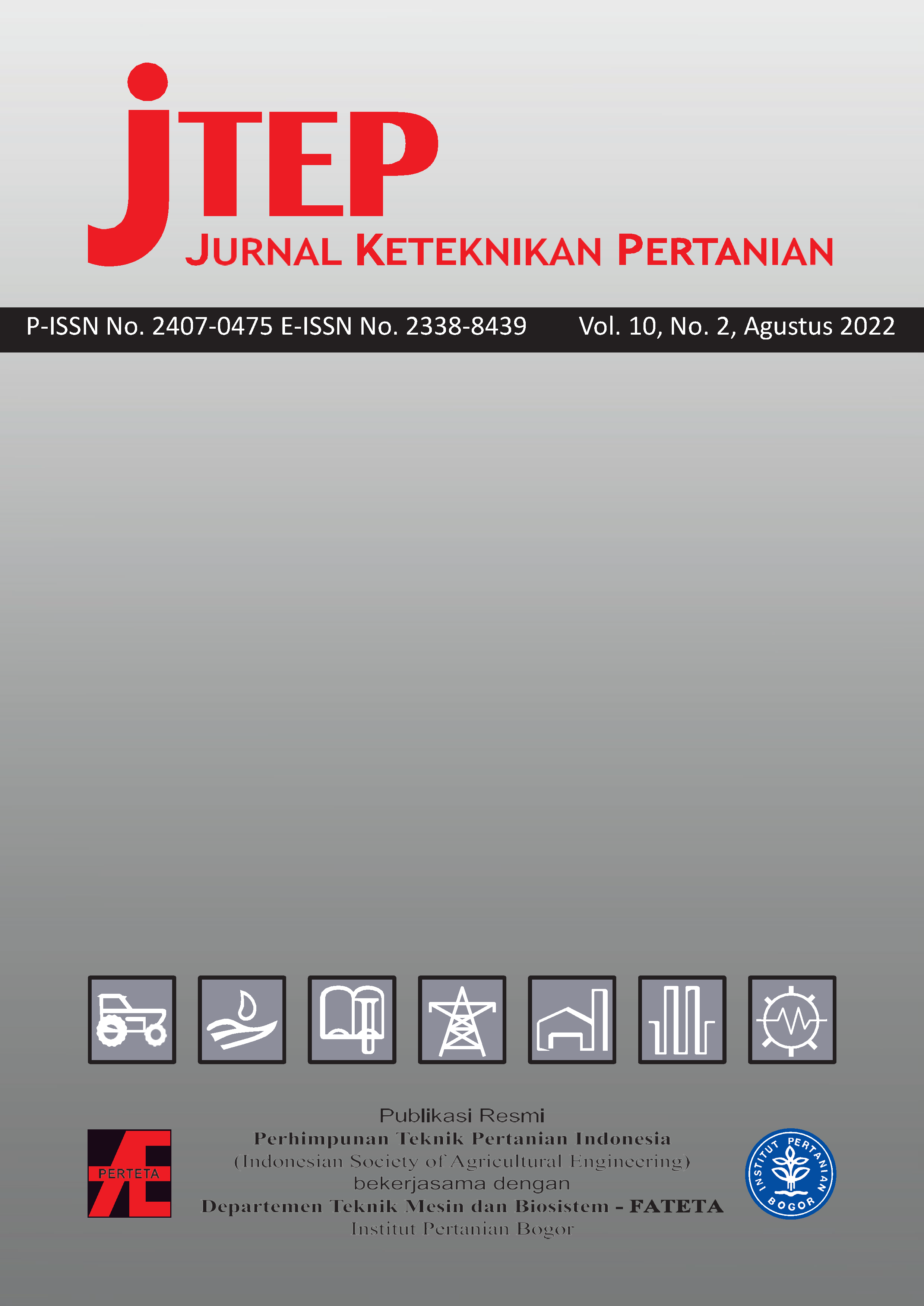Pengaruh Suhu Awal Dan Derajat Penyangraian Terhadap Sifat Fisikokimia Dan Citarasa Kopi Arabika Solok
Abstract
Roasting process is one of the processes in secondary processing. Variables used during the roasting process include the initial temperature and the degree of roasting. This study aims to analyze the physicochemical properties and perform taste tests on Arabica Solok coffee with different initial temperatures and roasting degrees. The study begans with the analysis before roasting, then roasting with the initial temperature of 180οC to 200οC and 220οC at any degree of roasting light, medium and dark and for the last, testing of the physicochemical and taste properties of Solok Arabica coffee. Analysis of the resulting data using two-way Analysis of Variance (ANOVA) and if it gives a significant effect, then continued with the Duncan' Multiple Range Test (DMRT). The results showed that the initial roasting temperature only affected the yield, flavor and aftertaste attributes . While the degree of roasting has a significant effect on several physicochemical properties including yield, bulk density, water content, color, acidity (pH) and several taste attributes including fragrance, flavor, acidity, body, aftertaste, sweetness and overall and there is no interaction between two variables on all tested properties. The physicochemical properties and taste attributes that were not affected by the initial temperature and roasting degree were ash content and antioxidant activity, balance, uniformity, and clean cup. Coffee with medium roasting degree treatment got the highest final score of 82,3 (specialty)
Authors

This work is licensed under a Creative Commons Attribution 4.0 International License.
Authors submitting manuscripts should understand and agree that copyright of manuscripts of the article shall be assigned/transferred to Jurnal Keteknikan Pertanian. This work is licensed under a Creative Commons Attribution-ShareAlike 4.0 International License (CC BY-SA) where Authors and Readers can copy and redistribute the material in any medium or format, as well as remix, transform, and build upon the material for any purpose, but they must give appropriate credit (cite to the article or content), provide a link to the license, and indicate if changes were made. If you remix, transform, or build upon the material, you must distribute your contributions under the same license as the original.

